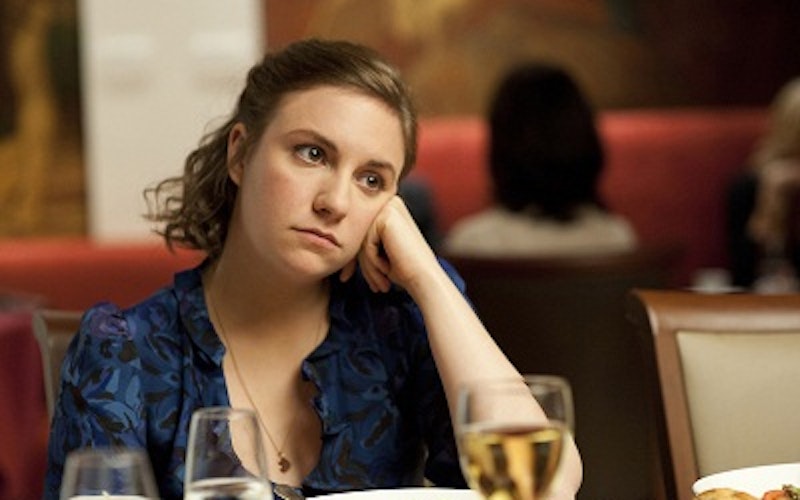
TV
Hard change on HBO's Girls
Lena Dunham walked away from the Golden Globes last night with two statues for the first season of Girls, an uproarious, insightful and challenging comedy that helps put to bed the myth that women cannot be funny. While many have rightly criticized it for its lack of diversity and very specific depiction of privileged, upper-class white folks in Brooklyn, the show has become a force to be reckoned with.
Ta-Nehisi Coates wrote last year in The Atlantic of the controversy over Girls’ lack of diversity: "I don't believe in creating characters out of a desire to please your audience or even to promote an ostensible social good. I think good writing is essentially a selfish act - storytellers are charged with crafting the narrative the[y] want to see." And Dunham - writer, producer and star of Girls - did just that with the first season, creating a story and a show that depicts a problematic all-white cast trying to figure out post-college life.
Judging by last night's season two premiere, she is sticking with that formula - telling the stories of a very specific group of somehow relatable though often unlikable twentysomethings lost in the tension between what the world wants of them and what they want of themselves.
The show challenges the bill of goods the world has sold many people of my generation - the be anything, do anything, dream anything generation that often hits reality hard when the first of the month rolls around and rent is due and your book is never going to get finished or sold.
That said, Girls is clearly telling a story that not everyone will buy into or want to see. The basic premise of the show is about the current generation of college graduates lost and trying to discover who they are. They are eternally optimistic, believing, for example, that a book of memoir essays will sell simply because they are a good writer. They think that discovering a new self and new identity is as simple as sending out an emphatic, cryptic tweet and dancing to Robyn in your bedroom. Last season challenged the ramifications of these assertions about life: is changing your life really so easy as pressing a button? What does hard change look like? As young adults often discover, like the main character Hannah (played by Dunham) does, life change isn't that easy, and it's not simply enough to effect an outer change - inner change and attitude need to go along with it.
The characters on the show are self-obsessed with outer appearances - not literal beauty, but whether or not they look like good people to others and whether or not they fit the various molds of the different identities that American culture has laid out for them. Season two seems to be opening up that can of worms and exploring it further. During a particularly poignant scene (and I’ll try to say this without spoiling), the privileged best friend of the main character, Marnie, and the new gay roommate, Elijah, have a heady discussion after a party about who they are and who they want to be. The end conclusion of their discussion is telling each other: "You don't have to pretend to be something you're not.”
It is these moments of naked vulnerability and personal growth that Girls prides itself on. It is revealing both the bad and the good parts of ourselves and realizing that change doesn't come so easily. The show challenges the bill of goods the world has sold many people of my generation - the be anything, do anything, dream anything generation that often hits reality hard when the first of the month rolls around and rent is due and your book is never going to get finished or sold. This examination, too, is meaningful for Christians as we struggle with finding an identity and a place in a world that wants to label and box us in very specific (and often negative) ways. Breaking free of the labels others impose on you and the labels you impose on yourself is a necessary part of the spiritual journey for Christians, and one which is mirrored by the characters in Girls.
If last night’s episode is any indication, Girls is prepared to explore those questions of what failure looks like, and how to assert one’s own identity in a world that pushes and pulls and labels you. For that, Girls is worth watching.
Topics: TV, Culture At Large, Arts & Leisure